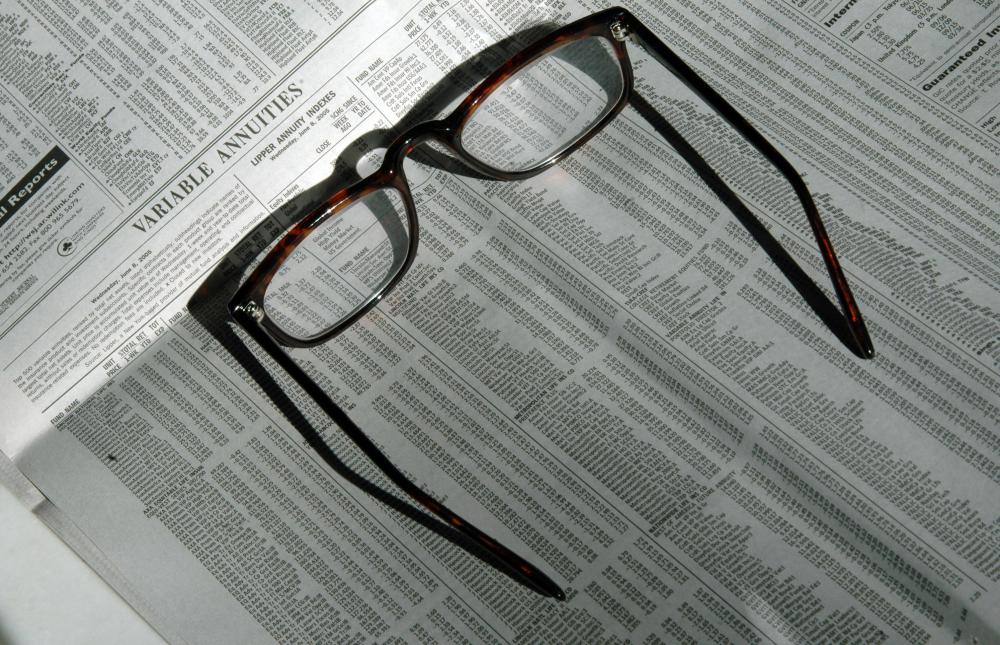At SmartCapitalMind, we're committed to delivering accurate, trustworthy information. Our expert-authored content is rigorously fact-checked and sourced from credible authorities. Discover how we uphold the highest standards in providing you with reliable knowledge.
What is an Exogenous Variable?
An exogenous variable is a factor that is outside of a given economic model. It often has an impact on the outcome of the model or how certain situations turn out, but it isn’t usually determinative in its own right and changes in the model don’t usually impact it. These variables are sometimes referred to as independent variables as opposed to dependent or endogenous variables, which are usually explained by the mathematical relationships in the model. While endogenous variables can be manipulated, exogenous ones are generally uncontrollable. The concept can be somewhat confusing to understand on a purely theoretical level, but economists and social scientists often think a lot about these sorts of things and how they play into different scenarios about sales and profit margins, broad fiscal policies, and changes in the international marketplace.
Why and How the Variable Is Used

Economic models are often very complicated, and one of the ways that researchers break them down is to identify and name all of the different pieces. Most models have to do with money. Shifts in currency exchange rates are one example; global impacts of natural disasters, the introduction of new products, and fluctuations in wage earnings and employment rates are possibilities, too. In these and other situations, there are some things that are going to change and be impacted and other things that will remain virtually unaffected. Economists usually refer to these “things” as “variables,” and the ones that aren’t directly impacted by a major shift are typically considered exogenous.

Exogenous variables aren’t often crucial to economic research, but they can give scholars and professionals a better and more well-rounded view of the impacts of any change, whether real or imagined. Even though these factors don’t usually change, they still matter. They are often useful when measuring things like the overall health of an economy or the stability of a market generally.
Basic Economic Model

One way to better understand this type of variable is to look at a basic economic model, like supply and demand for a certain item. In the basic version of this model, changes in the amount of money that a consumer has to spend on the product may impact the amount of demand for the item, but the demand curve does not usually influence the consumer's income. In this particular instance, consumer income — or how much the consumer has to spend at the outset — is an exogenous variable.
Imagining the good in question to be a home computer can help make this example even clearer. There is a certain level of demand for home computers around the world, and manufacturers sell a variety of computers at certain set prices in order to meet this demand. The dependent variables here include the price of the computers and the number of machines that are produced. Consumer income is exogenous; how much money the consumer has to spend on the computer is not a part of the equation at all. Just the same, this factor can affect the graph in that it alters the supply and demand curves, and therefore shifts the equilibrium level of price and quantity.
It is important to note here that a particular variable may be endogenous to one model but exogenous to another. There might be instances in which consumer income is essential. A lot depends on the circumstances and overarching goals of the study or data set.
Accounting for Measurement Error
Another example of this sort of variable is measurement error, which is the difference between the actual value of a quantity and the value measured experimentally. Some measurement error is generally taken to be a given in most models. It is usually considered exogenous because it doesn’t really change the results, and in fact it’s often expected to be something of a stagnant and unavoidable consideration.
Path Analysis
Path analysis, which is the study of causation, causality, and correlation between different variables, is also important. This sort of analysis investigates the interrelatedness of exogenous factors and how these then impact endogenous factors. These influences can either be direct or indirect, and are usually portrayed through structural equation modeling. Structural equation models are constructed by summing the contributions of all independent variables to a specific outcome.
AS FEATURED ON:
AS FEATURED ON:













Discussion Comments
@miriam98 - I don’t quite share your pessimism, although I do agree economics is partly art. However, some endogenous and exogenous variables do correlate fairly consistently. For example, a drop in interest rates usually means a rise in stock prices. This is fairly consistent.
However, there are times when this does not happen; in those cases, I would argue that there are other variables weighing in on the economy-perhaps a brooding worry about the falling value of the dollar and economic instability in other markets.
An economist can’t predict these things. He or she can only factor them into the equation after the fact.
You’d think economics was challenging enough without introducing additional variables, endogenous, exogenous or otherwise. Since economics is part science and part art, I would argue that it is not a closed system where all variables can be accounted for.
That’s why you can ask one hundred different economists what they think is going to happen to the economy and you’ll get a hundred different answers. I’ve made bad investments because I thought the economic winds were going to blow one way, when in fact they went the other way. In some cases it was my own fault.
For example, I missed most of the boom in the stock market in the late 1990s because of listening to economic prognosticators predicting that the end was near for stocks. Of course they were wrong, and so was I. Take all your variables with a grain of salt.
Post your comments